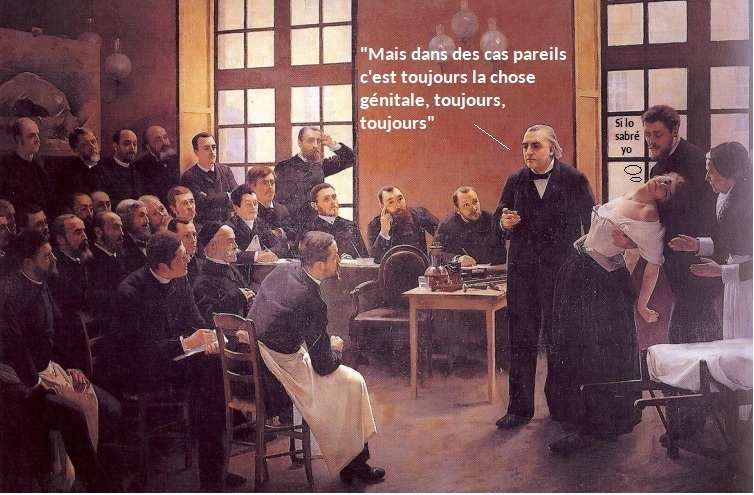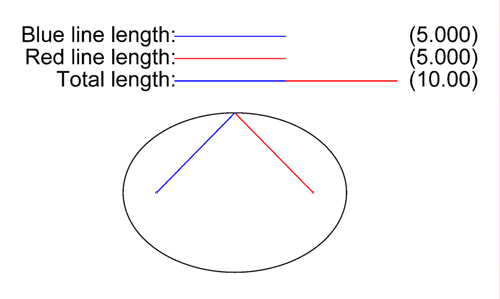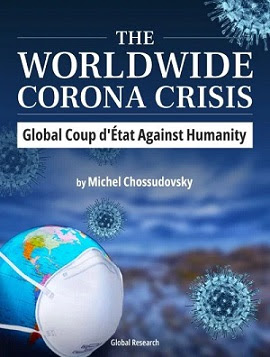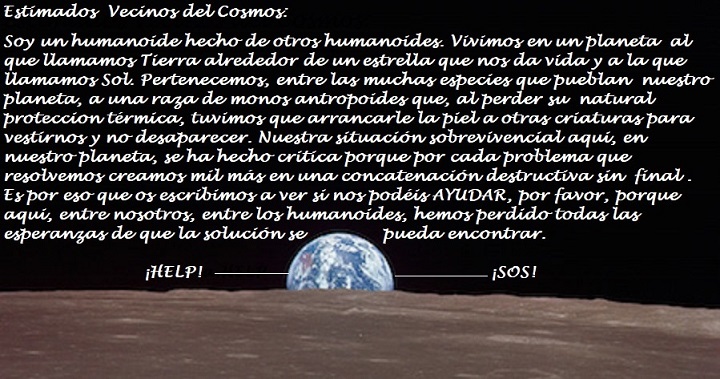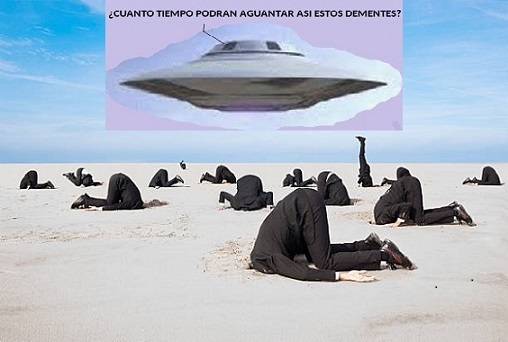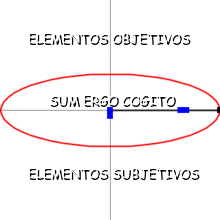Urgent Open Letter from Doctors
and Scientists to the European
Medicines Agency regarding COVID-
19 Vaccine Safety Concerns
Emer Cooke, Executive Director, European Medicines Agency, Amsterdam, The Netherlands
28 February 2021
Dear Sirs/Mesdames,
FOR THE URGENT PERSONAL ATTENTION OF: EMER COOKE, EXECUTIVE DIRECTOR OF THE EUROPEAN MEDICINES AGENCY
As physicians and scientists, we are supportive in principle of the use of new medical interventions which are appropriately developed and deployed, having obtained informed consent from the patient. This stance encompasses vaccines in the same way as therapeutics.
We note that a wide range of side effects is being reported following vaccination of previously healthy younger individuals with the gene-based COVID-19 vaccines. Moreover, there have been numerous media reports from around the world of care homes being struck by COVID-19 within days of vaccination of residents.
While we recognise that these occurrences might, every one of them, have been unfortunate coincidences, we are concerned that there has been and there continues to be inadequate scrutiny of the possible causes of illness or death under these circumstances, and especially so in the absence of post-mortems examinations.
In particular, we question whether cardinal issues regarding the safety of the vaccines were adequately addressed prior to their approval by the European Medicines Agency (EMA).
As a matter of great urgency, we herewith request that the EMA provide us with responses to the following issues:
1. Following intramuscular injection, it must be expected that the gene-based vaccines will reach the bloodstream and disseminate throughout the body [1]. We request evidence that this possibility was excluded in pre-clinical animal models with all three vaccines prior to their approval for use in humans by the EMA.
2. If such evidence is not available, it must be expected that the vaccines will remain entrapped in the circulation and be taken up by endothelial cells. There is reason to assume that this will happen particularly at sites of slow blood flow, i.e. in small vessels and capillaries [2]. We request evidence that this probability was excluded in pre-clinical animal models with all three vaccines prior to their approval for use in humans by the EMA.
3. If such evidence is not available, it must be expected that during expression of the vaccines’ nucleic acids, peptides derived from the spike protein will be presented via the MHC I — pathway at the luminal surface of the cells. Many healthy individuals have CD8-lymphocytes that recognize such peptides, which may be due to prior COVID infection, but also to cross-reactions with other types of Coronavirus [3; 4] [5]. We must assume that these lymphocytes will mount an attack on the respective cells. We request evidence that this probability was excluded in pre-clinical animal models with all three vaccines prior to their approval for use in humans by the EMA.
4. If such evidence is not available, it must be expected that endothelial damage with subsequent triggering of blood coagulation via platelet activation will ensue at countless sites throughout the body. We request evidence that this probability was excluded in pre-clinical animal models with all three vaccines prior to their approval for use in humans by the EMA.
5. If such evidence is not available, it must be expected that this will lead to a drop in platelet counts, appearance of D-dimers in the blood, and to myriad ischaemic lesions throughout the body including in the brain, spinal cord and heart. Bleeding disorders might occur in the wake of this novel type of DIC-syndrome including, amongst other possibilities, profuse bleedings and haemorrhagic stroke. We request evidence that all these possibilities were excluded in pre-clinical animal models with all three vaccines prior to their approval for use in humans by the EMA.
6. The SARS-CoV-2 spike protein binds to the ACE2 receptor on platelets, which results in their activation [6]. Thrombocytopenia has been reported in severe cases of SARS-CoV-2 infection [7]. Thrombocytopenia has also been reported in vaccinated individuals [8]. We request evidence that the potential danger of platelet activation that would also lead to disseminated intravascular coagulation (DIC) was excluded with all three vaccines prior to their approval for use in humans by the EMA.
7. The sweeping across the globe of SARS-CoV-2 created a pandemic of illness associated with many deaths. However, by the time of consideration for approval of the vaccines, the health systems of most countries were no longer under imminent threat of being overwhelmed because a growing proportion of the world had already been infected and the worst of the pandemic had already abated. Consequently, we demand conclusive evidence that an actual emergency existed at the time of the EMA granting Conditional Marketing Authorisation to the manufacturers of all three vaccines, to justify their approval for use in humans by the EMA, purportedly because of such an emergency.
Should all such evidence not be available, we demand that approval for use of the gene-based vaccines be withdrawn until all the above issues have been properly addressed by the exercise of due diligence by the EMA.
There are serious concerns, including but not confined to those outlined above, that the approval of the COVID-19 vaccines by the EMA was premature and reckless, and that the administration of the vaccines constituted and still does constitute “human experimentation”, which was and still is in violation of the Nuremberg Code.
In view of the urgency of the situation, we request that you reply to this email within seven days and address all our concerns substantively. Should you choose not to comply with this reasonable request, we will make this letter public.
This email is copied to:
Charles Michel, President of the Council of Europe
Ursula von der Leyen, President of the European Commission.
Doctors and scientists can sign the open letter by emailing their name, qualifications, areas of expertise, country and any affiliations they would like to cite, to Doctors4CovidEthics@protonmail.com
Yours faithfully,
Professsor Sucharit Bhakdi MD, Professor Emeritus of Medical Microbiology and Immunology, Former Chair, Institute of Medical Microbiology and Hygiene, Johannes Gutenberg University of Mainz (Medical Doctor and Scientist) (Germany and Thailand)
Dr Marco Chiesa MD FRCPsych, Consultant Psychiatrist and Visiting Professor, University College London (Medical Doctor) (United Kingdom and Italy)
Dr C Stephen Frost BSc MBChB Specialist in Diagnostic Radiology, Stockholm, Sweden (Medical Doctor) (United Kingdom and Sweden)
Dr Margareta Griesz-Brisson MD PhD, Consultant Neurologist and Neurophysiologist (studied Medicine in Freiburg, Germany, speciality training for Neurology at New York University, Fellowship in Neurophysiology at Mount Sinai Medical Centre, New York City; PhD in Pharmacology with special interest in chronic low level neurotoxicology and effects of environmental factors on brain health), Medical Director, The London Neurology and Pain Clinic (Medical Doctor and Scientist) (Germany and United Kingdom)
Professor Martin Haditsch MD PhD, Specialist (Austria) in Hygiene and Microbiology, Specialist (Germany) in Microbiology, Virology, Epidemiology/Infectious Diseases, Specialist (Austria) in Infectious Diseases and Tropical Medicine, Medical Director, TravelMedCenter, Leonding, Austria, Medical Director, Labor Hannover MVZ GmbH (Medical Doctor and Scientist) (Austria and Germany)
Professor Stefan Hockertz, Professor of Toxicology and Pharmacologym, European registered Toxicologist, Specialist in Immunology and Immunotoxicology, CEO tpi consult GmbH. (Scientist) (Germany)
Dr Lissa Johnson, BSc BA(Media) MPsych(Clin) PhD, Clinical Psychologist and Behavioural Psychologist, Expertise in the social psychology of torture, atrocity, collective violence and fear propaganda, Former member Australian Psychological Society Public Interest Advisory Group (Clinical Psychologist and Behavioural Scientist) (Australia)
Professor Ulrike Kämmerer PhD, Associate Professor of Experimental Reproductive Immunology and Tumor Biology at the Department of Obstetrics and Gynaecology, University Hospital of Würzburg, Germany, Trained molecular virologist (Diploma, PhD-Thesis) and Immunologist (Habilitation), Remains engaged in active laboratory research (Molecular Biology, Cell Biology (Scientist) (Germany)
Associate Professor Michael Palmer MD, Department of Chemistry (studied Medicine and Medical Microbiology in Germany, has taught Biochemistry since 2001 in present university in Canada; focus on Pharmacology, metabolism, biological membranes, computer programming; experimental research focus on bacterial toxins and antibiotics (Daptomycin); has written a textbook on Biochemical Pharmacology, University of Waterloo, Ontario, Canada (Medical Doctor and Scientist) (Canada and Germany)
Professor Karina Reiss PhD, Professor of Biochemistry, Christian Albrecht University of Kiel, Expertise in Cell Biology, Biochemistry (Scientist) (Germany)
Professor Andreas Sönnichsen MD, Professor of General Practice and Family Medicine, Department of General Practice and Family Medicine, Center of Public Health, Medical University of Vienna, Vienna (Medical Doctor) (Austria)
Dr Michael Yeadon BSc (Joint Honours in Biochemistry and Toxicology) PhD (Pharmacology), Formerly Vice President & Chief Scientific Officer Allergy & Respiratory, Pfizer Global R&D; Co-founder & CEO, Ziarco Pharma Ltd.; Independent Consultant (Scientist) (United Kingdom)
References
[1] Hassett, K. J.; Benenato, K. E.; Jacquinet, E.; Lee, A.; Woods, A.; Yuzhakov, O.; Himansu, S.; Deterling, J.; Geilich, B. M.; Ketova, T.; Mihai, C.; Lynn, A.; McFadyen, I.; Moore, M. J.; Senn, J. J.; Stanton, M. G.; Almarsson, Ö.; Ciaramella, G. and Brito, L. A.(2019).Optimization of Lipid Nanoparticles for Intramuscular Administration of mRNA Vaccines, Molecular therapy. Nucleic acids 15 : 1–11.
[2] Chen, Y. Y.; Syed, A. M.; MacMillan, P.; Rocheleau, J. V. and Chan, W. C. W.(2020). Flow Rate Affects Nanoparticle Uptake into Endothelial Cells, Advanced materials 32 : 1906274.
[3] Grifoni, A.; Weiskopf, D.; Ramirez, S. I.; Mateus, J.; Dan, J. M.; Moderbacher, C. R.; Rawlings, S. A.; Sutherland, A.; Premkumar, L.; Jadi, R. S. and et al.(2020). Targets of T Cell Responses to SARS-CoV-2 Coronavirus in Humans with COVID-19 Disease and Unexposed Individuals, Cell 181 : 1489–1501.e15.
[4] Nelde, A.; Bilich, T.; Heitmann, J. S.; Maringer, Y.; Salih, H. R.; Roerden, M.; Lübke, M.; Bauer, J.; Rieth, J.; Wacker, M.; Peter, A.; Hörber, S.; Traenkle, B.; Kaiser, P. D.; Rothbauer, U.; Becker, M.; Junker, D.; Krause, G.; Strengert, M.; Schneiderhan-Marra, N.; Templin, M. F.; Joos, T. O.; Kowalewski, D. J.; Stos-Zweifel, V.; Fehr, M.; Rabsteyn, A.; Mirakaj, V.; Karbach, J.; Jäger, E.; Graf, M.; Gruber, L.-C.; Rachfalski, D.; Preuß, B.; Hagelstein, I.; Märklin, M.; Bakchoul, T.; Gouttefangeas, C.; Kohlbacher, O.; Klein, R.; Stevanović, S.; Rammensee, H.-G. and Walz, J. S.(2020). SARS-CoV-2-derived peptides define heterologous and COVID-19-induced T cell recognition, Nature immunology.
[5] Sekine, T.; Perez-Potti, A.; Rivera-Ballesteros, O.; Strålin, K.; Gorin, J.-B.; Olsson, A.; Llewellyn-Lacey, S.; Kamal, H.; Bogdanovic, G.; Muschiol, S. and et al.(2020). Robust T Cell Immunity in Convalescent Individuals with Asymptomatic or Mild COVID-19, Cell 183 : 158–168.e14.
[6] Zhang, S.; Liu, Y.; Wang, X.; Yang, L.; Li, H.; Wang, Y.; Liu, M.; Zhao, X.; Xie, Y.; Yang, Y.; Zhang, S.; Fan, Z.; Dong, J.; Yuan, Z.; Ding, Z.; Zhang, Y. and Hu, L.(2020). SARS-CoV-2 binds platelet ACE2 to enhance thrombosis in COVID-19, Journal of hematology & oncology 13 : 120.
[7] Lippi, G.; Plebani, M. and Henry, B. M.(2020).Thrombocytopenia is associated with severe coronavirus disease 2019 (COVID-19) infections: A meta-analysis, Clin. Chim. Acta 506 : 145–148.
[8] Grady, D. (2021). A Few Covid Vaccine Recipients Developed a Rare Blood Disorder, The New York Times, Feb. 8, 2021.

















































































































































































































